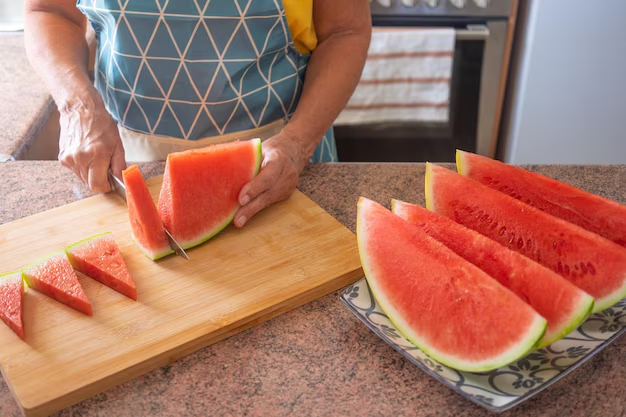Your Guide to Is Watermelon Suitable For Diabetics
What You Get:
Free Guide
Free, helpful information about Diabetes FAQ and related Is Watermelon Suitable For Diabetics topics.
Helpful Information
Get clear and easy-to-understand details about Is Watermelon Suitable For Diabetics topics and resources.
Personalized Offers
Answer a few optional questions to receive offers or information related to Diabetes FAQ. The survey is optional and not required to access your free guide.
Is Watermelon Safe for Diabetics? Here's What You Should Know
When summer hits, nothing quite compares to the sweet, refreshing taste of watermelon. However, if you're one of the millions managing diabetes, you may wonder whether this juicy fruit is a friend or foe. Here's the scoop on watermelon for diabetics and how you can navigate its place in a balanced diet.
Nutritional Profile of Watermelon
Watermelon is primarily composed of water — about 92% — making it hydrating and relatively low in calories. A typical serving of watermelon (about one cup of diced melon) provides approximately:
- 46 calories
- 11 grams of carbohydrates
- 9 grams of sugar
- 0.6 grams of fiber
- Vitamins A, C, and B6, along with other antioxidants
Glycemic Index and Load
To determine if watermelon is suitable for diabetics, you should consider its Glycemic Index (GI) and Glycemic Load (GL). The GI is a number that indicates how quickly a food can raise your blood sugar levels, with scores 70 and above considered high. Watermelon has a GI score of around 72.
However, it's also essential to consider Glycemic Load, which accounts for the carbohydrate content in a typical serving size and offers a more practical measure of a food's impact on blood sugar. Watermelon's GL per cup is relatively low at around 4-5. Thus, when consumed in moderate portions, watermelon may fit into a well-structured diabetic meal plan.
Watermelon and Diabetes: Moderation is Key
Eating watermelon in moderation can provide hydration and essential nutrients without significantly affecting blood sugar if balanced with other foods. Here are a few tips for integrating it healthfully into your diet:
- Pair watermelon with fiber and protein-rich foods, such as nuts or cheese, to slow sugar absorption and stabilize blood sugar levels.
- Monitor your portion size; keep it to about one cup of diced watermelon to minimize peaks in blood sugar.
- Spread out fruit consumption throughout the day rather than in a single meal or snack.
Broader Support and Resources for Diabetes Management
Making informed choices about your diet, including whether to eat watermelon, is just one aspect of diabetes management. Many resources can help you navigate other challenges, such as healthcare costs and educational needs. Exploring available assistance options can significantly ease the financial burden and support a more comprehensive approach to managing your diabetes.
Key Resources for From Diabetes Management to Financial Support
- 🍎 Nutritional Education Programs: Many local health departments offer free or low-cost workshops on healthy eating for diabetes.
- 📉 Debt Relief Options: Managing diabetes can be expensive. Look into federal and state debt relief programs to ease medical debt.
- 💳 Credit Card Solutions: Specialized credit cards are available for health-related expenses. These can offer rewards or reduced interest rates to help manage costs.
- 🎓 Educational Grants: For those aiming to deepen their knowledge, scholarships and grants are available specifically for studying nutrition or healthcare fields.
- 🏥 Government Aid Programs: Programs like Medicare and Medicaid provide assistance for diabetes medications and supplies.
- 📞 Diabetes Hotlines: Reach out for advice and support – many hotlines offer assistance with healthcare navigation and lifestyle advice.
Addressing diabetes holistically can empower you to make satisfying dietary choices and secure the support needed to maintain optimal health and wellness.
What You Get:
Free Diabetes FAQ Guide
Free, helpful information about Is Watermelon Suitable For Diabetics and related resources.

Helpful Information
Get clear, easy-to-understand details about Is Watermelon Suitable For Diabetics topics.

Optional Personalized Offers
Answer a few optional questions to see offers or information related to Diabetes FAQ. Participation is not required to get your free guide.


